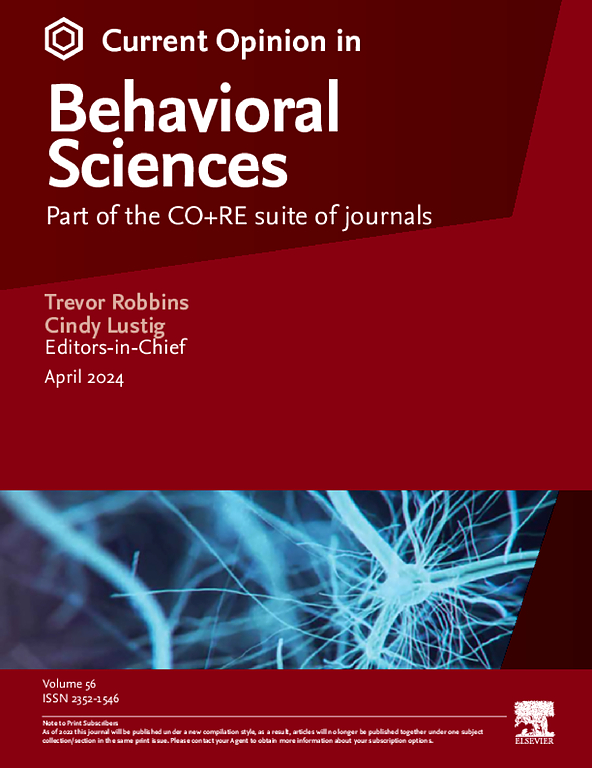默认模式网络的具体化:具身视角下的自我相关加工
IF 3.5
2区 心理学
Q1 BEHAVIORAL SCIENCES
引用次数: 0
摘要
默认模式网络(DMN)中的自我相关过程主要是通过认知视角来看待的,往往忽略了自我的具体化维度。本文通过重新审视DMN的两个关键的自我相关过程:自我关联和自我参照,提出了DMN功能的具体化重新概念化。我们认为,自我关联根植于内感受推断和价值估计,基于它们对身体内部状态的预测长期影响来评估刺激。我们引入了“情感地图”的概念——内部身体状态的内部模型与认知地图平行,认知地图是外部世界的内部模型。我们进一步通过二阶控制论的视角重新解释自我参照,将DMN构建为反射性、非平凡的脑-体系统的核心组成部分,该系统通过双向脑-体回路监测和调节内部环境。这种系统级的观点整合了内感受、情感神经科学和控制论的见解,将DMN定位为对构建和调节自我至关重要的具体化内部模型。本文章由计算机程序翻译,如有差异,请以英文原文为准。
Embodying the default mode network: self-related processing from an embodied perspective
Self-related processes in the default mode network (DMN) have been viewed predominantly through a cognitive lens, often overlooking the embodied dimensions of self. This paper proposes an embodied reconceptualization of DMN function by revisiting its two key self-related processes: self-relevance and self-reference. We argue that self-relevance is rooted in interoceptive inference and value estimation, assessing stimuli based on their predicted long-term impacts on internal bodily states. We introduce the notion of ‘affective maps’ — internal models of internal bodily state that parallel cognitive maps, which are internal models of the external world. We further reinterpret self-reference through the lens of second-order cybernetics, framing the DMN as a core component of a reflexive, nontrivial brain–body system, which monitors and regulates the internal milieu through bidirectional brain–body loops. This systems-level view integrates insights from interoception, affective neuroscience, and cybernetics, positioning the DMN as an embodied internal model crucial for constructing and regulating selfhood.
求助全文
通过发布文献求助,成功后即可免费获取论文全文。
去求助
来源期刊

Current Opinion in Behavioral Sciences
Neuroscience-Cognitive Neuroscience
CiteScore
10.90
自引率
2.00%
发文量
135
期刊介绍:
Current Opinion in Behavioral Sciences is a systematic, integrative review journal that provides a unique and educational platform for updates on the expanding volume of information published in the field of behavioral sciences.
 求助内容:
求助内容: 应助结果提醒方式:
应助结果提醒方式:


